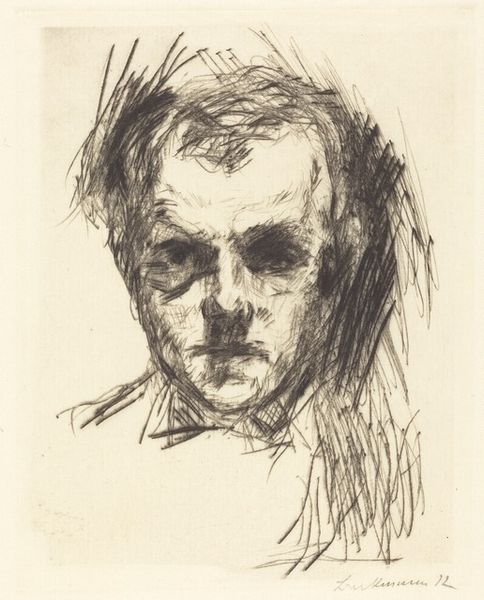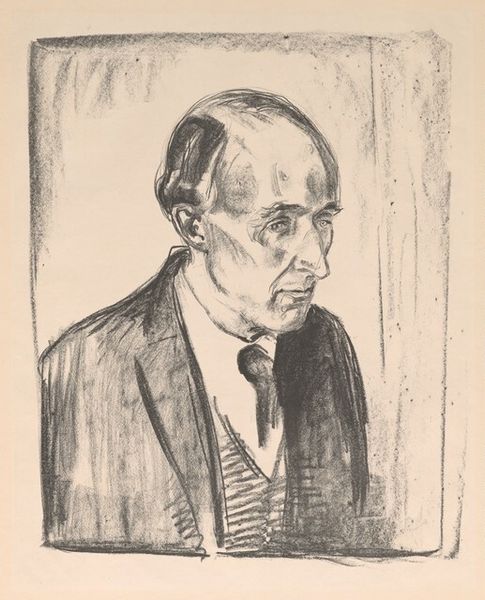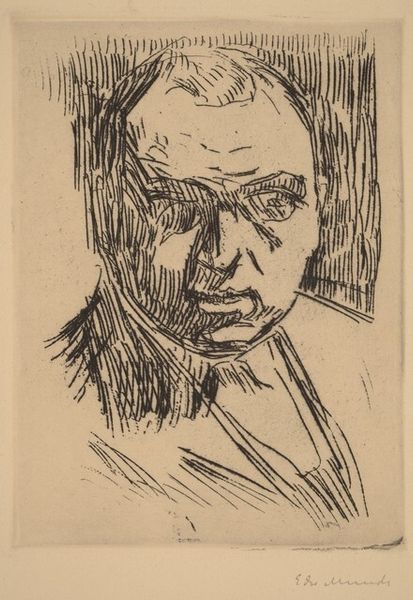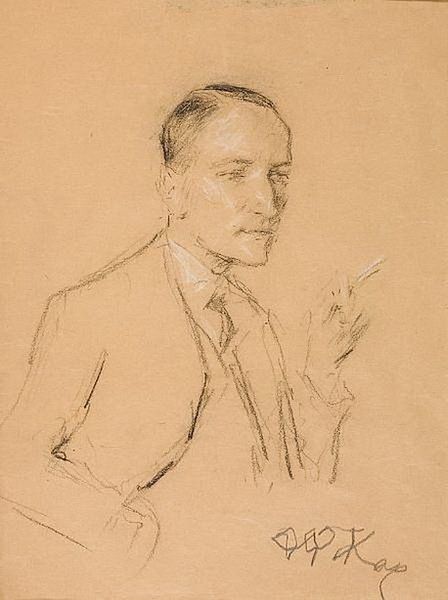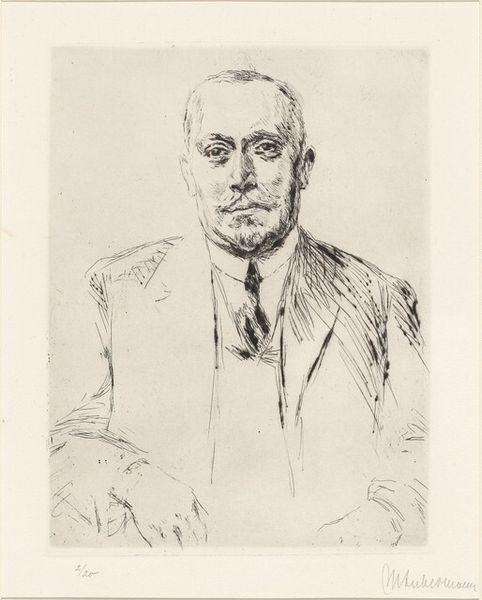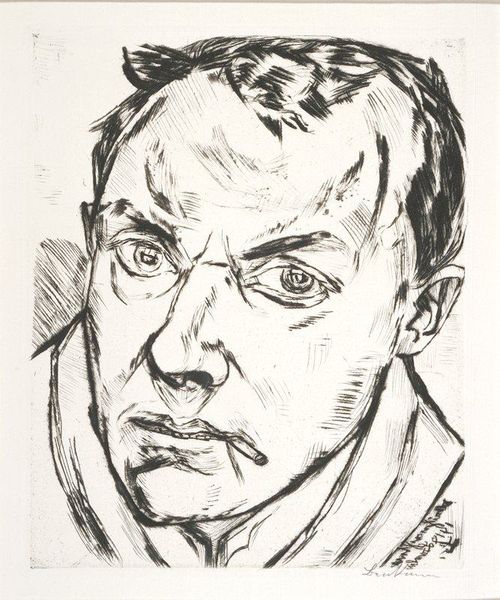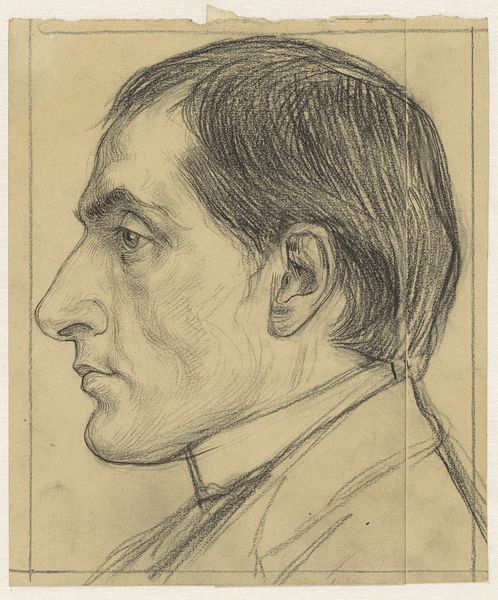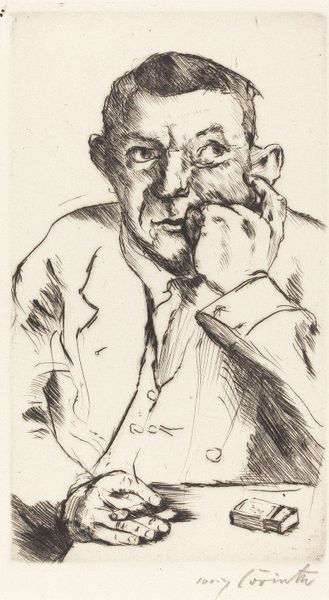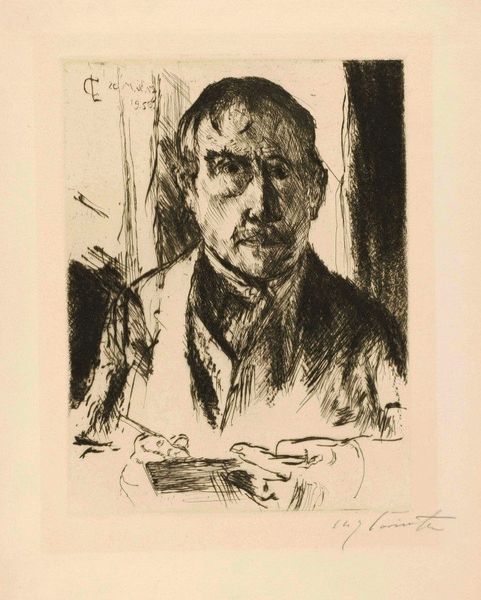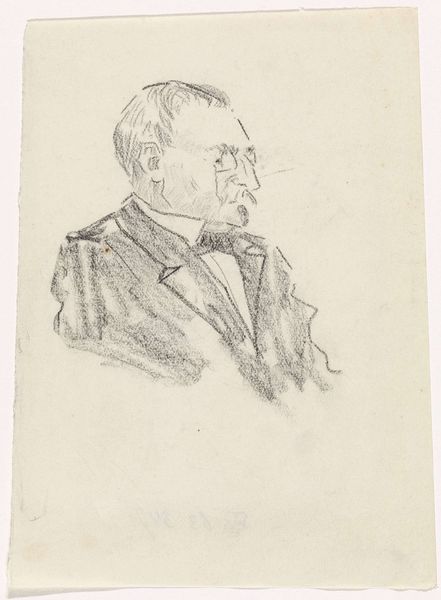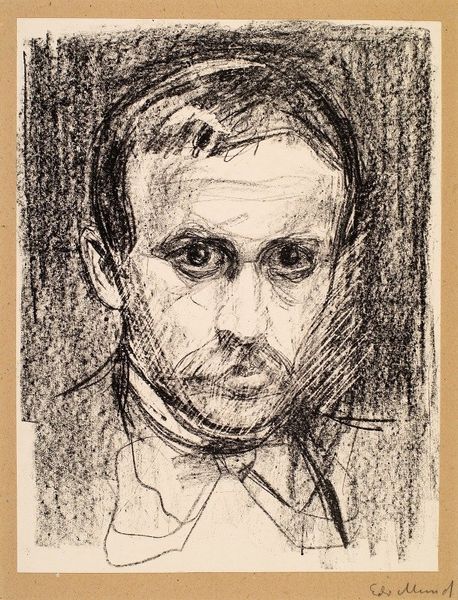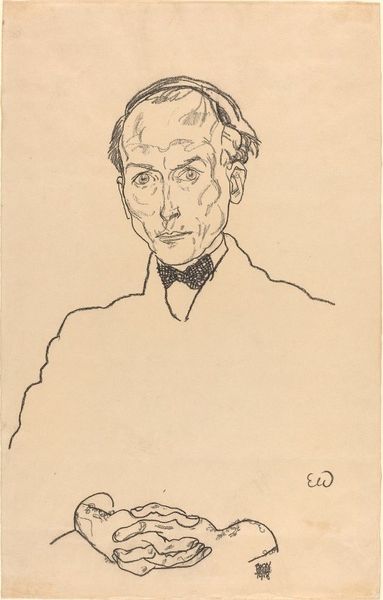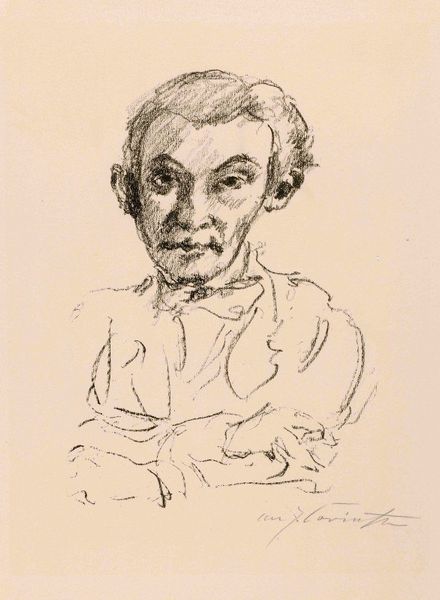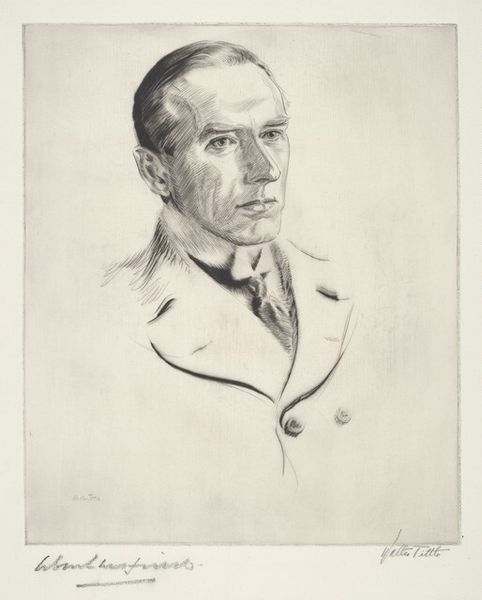
print, etching
#
portrait
#
self-portrait
# print
#
etching
#
german-expressionism
#
figuration
#
expressionism
#
line
Copyright: National Gallery of Art: CC0 1.0
Editor: Here we have Max Beckmann’s "Self-Portrait," an etching from 1914. It's rendered in stark lines; there’s a kind of harshness to the face. What’s your interpretation of it? Curator: That harshness, as you call it, is telling. Beckmann made this on the cusp of World War I, a moment of profound upheaval. How do you think that impending catastrophe might have influenced his self-representation? Editor: I suppose the anxiety of the era is reflected. The expression is intense, almost confrontational. The etching lines contribute to a feeling of rawness. Do you see other connections between the context and the work itself? Curator: Absolutely. Beckmann was part of the Expressionist movement, which grappled with alienation and social anxieties. He was also a medical orderly during the war, witnessing horrific violence firsthand. How do you think that lived experience could translate into a portrait like this, created before the full horrors unfolded for him personally? Editor: Perhaps it's a premonition, an anticipation of suffering and disillusionment. The rigid lines could symbolize societal structures about to break down. I see that reflected in the overall formal choices. Curator: Exactly. Think about the artistic and social conventions he rejects. This isn't a flattering, idealized depiction; it’s raw and unsettling. Do you see this portrait as a commentary on identity? Or on the individual’s place within society? Editor: Both, probably. It’s an honest portrayal that challenges viewers to confront uncomfortable truths about themselves and the world around them. It's more than a likeness; it's a statement. Curator: A statement against the illusions of a stable, ordered world, perhaps. Seeing it through the lens of trauma and social upheaval really clarifies its power for me. Editor: I agree. Thinking about the war, the artist's experience of it, and its social commentary reshaped how I perceive this "Self-Portrait".
Comments
No comments
Be the first to comment and join the conversation on the ultimate creative platform.
